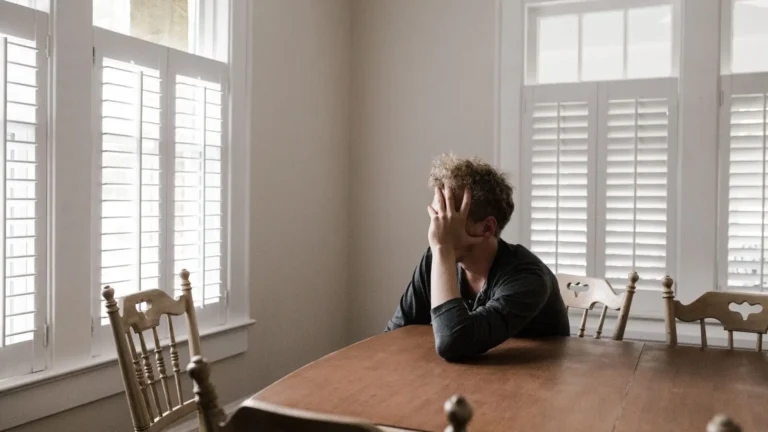Debunking Myths About Intrusive Thoughts: What You Need to Know
Intrusive thoughts can be distressing, unsettling, and confusing, leaving many individuals questioning their mental health and even their character. These thoughts often pop into our minds unexpectedly and can be violent, sexual, or simply bizarre in nature. At McNulty Counseling and Wellness, we understand how challenging it can be to live with intrusive thoughts, especially when misconceptions about them can add an extra layer of fear and shame. In this blog post, we’ll debunk some of the most common myths about intrusive thoughts and offer guidance on how professional counseling can help manage them effectively.
What Are Intrusive Thoughts?
Intrusive thoughts are unwanted thoughts or images that can cause significant distress or anxiety. They often appear out of nowhere and can be repetitive and persistent. While everyone experiences intrusive thoughts from time to time, they can become particularly problematic when they are frequent and distressing, leading to a cycle of anxiety and avoidance.
For more information about how anxiety can impact daily life and the treatments available, visit our Anxiety Counseling page.
Myth 1: Intrusive Thoughts Reflect Your True Desires or Character
One of the most damaging myths about intrusive thoughts is the belief that they reflect a person’s true desires or character. For example, someone who experiences a violent thought might fear that they have violent tendencies. However, intrusive thoughts are not a reflection of your values, beliefs, or intentions. They are often the opposite of what you hold dear, which is precisely why they cause so much distress.
Fact: Intrusive Thoughts Are a Sign of Anxiety, Not Character
Intrusive thoughts are often a symptom of anxiety or obsessive-compulsive disorder (OCD). They are distressing precisely because they contradict a person’s values and self-image. Understanding this can be a powerful step toward reducing the stigma and shame that often accompanies these thoughts. At McNulty Counseling and Wellness, our experienced therapists help clients differentiate between their thoughts and their identity, providing a safe space to explore these fears without judgment.
Myth 2: Intrusive Thoughts Can Lead to Actions
Many people worry that having an intrusive thought means they are likely to act on it. For instance, a person who has an intrusive thought about harming someone may fear they are a danger to others. This myth is particularly harmful because it can lead to increased anxiety, social withdrawal, and reluctance to seek help.
Fact: Thoughts Are Not the Same as Intentions
It’s crucial to understand that thoughts are not actions. The distress caused by an intrusive thought often serves as a clear indicator that the thought is unwanted and will not be acted upon. Research shows that people with intrusive thoughts are typically the least likely to act on them because the thoughts are so contrary to their true intentions and desires. Cognitive-behavioral therapy (CBT), which we offer at McNulty Counseling and Wellness, can be particularly effective in helping individuals reframe their thoughts and reduce the anxiety they cause.
Myth 3: Intrusive Thoughts Are Rare and Abnormal
Many individuals suffering from intrusive thoughts believe they are alone in their experience, thinking that their thoughts are unusual or a sign of a severe mental health disorder. This misconception can lead to feelings of isolation and a reluctance to seek help.
Fact: Intrusive Thoughts Are Common
Intrusive thoughts are a normal part of the human experience. Studies indicate that nearly everyone has experienced some form of intrusive thought at some point in their lives. However, people with certain anxiety disorders, such as OCD, are more likely to become fixated on these thoughts, giving them more significance than they deserve. At McNulty Counseling and Wellness, our therapists use evidence-based practices to help clients understand that they are not alone and that their thoughts do not define them.
Myth 4: You Should Suppress or Avoid Intrusive Thoughts
Another common misconception is that the best way to deal with intrusive thoughts is to suppress or avoid them. This approach can seem logical but often results in increased anxiety and even more intrusive thoughts.
Fact: Acceptance and Mindfulness Can Reduce Intrusive Thoughts
Trying to suppress intrusive thoughts often has the opposite effect, making them more persistent and distressing. Acceptance and mindfulness-based therapies, such as Acceptance and Commitment Therapy (ACT), have been shown to help individuals reduce the power and frequency of intrusive thoughts by accepting them without judgment and refocusing attention on more constructive behaviors. At McNulty Counseling and Wellness, we incorporate these therapeutic techniques to help clients develop a healthier relationship with their thoughts.
Myth 5: Only People With OCD Have Intrusive Thoughts
While it is true that intrusive thoughts are a common symptom of OCD, they are not exclusive to this disorder. Many people with anxiety, depression, or other mental health conditions may also experience intrusive thoughts.
Fact: Intrusive Thoughts Can Occur in Various Mental Health Conditions
Intrusive thoughts can affect anyone, regardless of whether they have a diagnosed mental health condition. They can occur in the context of generalized anxiety disorder (GAD), post-traumatic stress disorder (PTSD), depression, and even during periods of high stress. Recognizing this can help reduce the stigma associated with intrusive thoughts and encourage more people to seek help. For those struggling with anxiety and intrusive thoughts, our Anxiety Counseling services offer support and guidance tailored to individual needs.
How Counseling Can Help Manage Intrusive Thoughts
If you or a loved one is struggling with intrusive thoughts, it’s important to remember that help is available. Counseling can provide a safe and supportive environment to explore these thoughts, understand their origins, and develop coping strategies. At McNulty Counseling and Wellness, our therapists are trained to help clients manage intrusive thoughts using various evidence-based approaches, including:
- Cognitive-Behavioral Therapy (CBT): Helps identify and challenge negative thought patterns.
- Exposure and Response Prevention (ERP): A type of CBT specifically effective for OCD, which involves exposure to the thoughts without engaging in compulsive behaviors.
- Mindfulness-Based Cognitive Therapy (MBCT): Combines cognitive therapy techniques with mindfulness strategies to help clients accept and move past intrusive thoughts.
- Acceptance and Commitment Therapy (ACT): Focuses on accepting intrusive thoughts without judgment and committing to values-based actions.
To learn more about the therapies we offer, click here.
Take the First Step Toward Peace of Mind
Intrusive thoughts can be a challenging aspect of life, but they don’t have to control your well-being. At McNulty Counseling and Wellness, we’re here to help you navigate these thoughts with compassion and expertise. If you’re ready to take the first step toward a healthier mindset, call us at 727-344-9867 or submit a contact form here. Let us help you regain control and find peace of mind.







